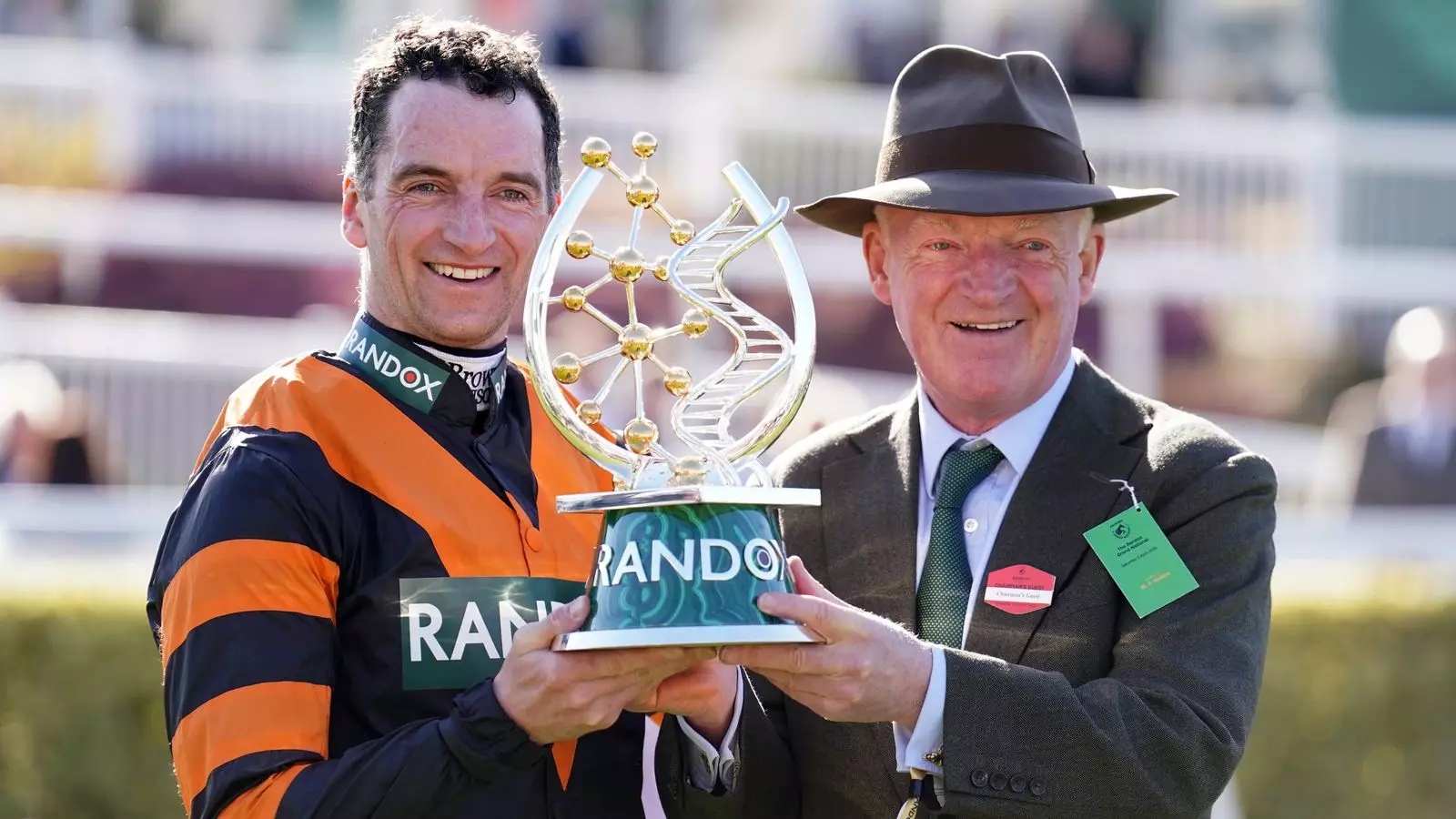The recent Grand National yielded a spectacle that transcended mere sport, weaving together narratives of triumph, grief, and familial bonds that echo throughout horse racing lore. Patrick Mullins, riding the 33/1 outsider Nick Rockett, didn’t just participate in the race; he etched his name into history as he and his horse triumphed over elite competition—a remarkable feat accomplished under the nurturing guidance of his father, Willie Mullins. Such a story is not merely about winning; it is about grappling with legacy, expectations, and emotional tides that flow through generations.
Willie Mullins has carved out a reputation as one of the leading trainers in the equestrian world, and his recent placement in the race—training a staggering five of the top seven horses—speaks volumes about his proficiency and insight in the sport. Nevertheless, as impressive as statistics may appear, the emotional backdrop of this event bears closer examination. For Patrick, it was a journey from his childhood dreams, enriched by the stories of great horses like Red Rum, to the reality of triumphing in the same race he spent years idolizing.
Emotion Beyond Victory
Yet, amid the jubilation lies an undertone of poignant melancholy. Stewart Andrew, the owner of Nick Rockett, represents a duality that is all too familiar in the realm of sports: the intertwining of joy and heartbreak. Celebrating a monumental win is bittersweet for Andrew, whose wife Sadie passed away just months prior, a loss that casts a long shadow over the day’s festivities. “This is a class horse, he’s got the heart of a lion,” Andrew remarked, highlighting not just the exceptional nature of Nick Rockett, but also a love that transcends even the depths of grief.
Andrew’s candid vulnerability serves as a reminder that behind the grandeur of racing, the human experience often includes profound sorrow mixed with elation. It reflects the dual faces of victory and loss, solidifying the race as much a human tale as it is an equestrian challenge. The Grand National is not merely a race; it is a crucible for life’s highs and lows, where every participant carries their own narrative that contributes to the tapestry of the event.
Reflecting on Risks and Safety
The Grand National has long held the reputation of being one of the most perilous horse races—a status that casts a shadow over its glorious traditions. The recent iteration brought a renewed focus on safety, with changes that aimed to mitigate risks inherent in such demanding challenges. The introduction of measures like a standing start and reduced competitors is commendable, yet it raises questions: are these adjustments enough to safeguard the lives of both horse and rider, or do they dilute the essence of a race steeped in danger and glory?
The idea that a race can be simultaneously perilous and iconic suggests a moral complexity. The thrill of the Grand National lies not just in the glory of victory, but also in its inherent risks. Yet, as a society increasingly aware of animal welfare and safety concerns, the ongoing evolution of the race brings a curious dichotomy to light. Do we, as enthusiasts, have the right to revel in an event that, by nature, courts danger? This dilemma is a vital consideration for anyone with a vested interest in the sport.
A Legacy in the Making
Looking ahead, the legacy of the Mullins family in the sport illustrates the significance of mentorship, familial ties, and history. Patrick’s victory is not just a banner of personal achievement; it symbolizes a blending of past, present, and future. Willie Mullins’ experience, combined with Patrick’s youthful exuberance, creates a dynamic that could redefine what we expect from the next generations of riders.
Yet, this lineage does raise another important question about the accessibility of horse racing: Is the sport becoming a playground for the affluent and the elite, to the exclusion of aspiring riders from diverse backgrounds? The Grand National, a stage that should inspire ambition and dreams, must also strive to remain inclusive.
This race that brings together so many narratives—of victory, loss, joy, and heartache—challenges us to reflect on the deeper implications behind the spectacles we celebrate. Each run and every fall serve as a reminder that narratives in sports are often as compelling—and complex—as real life itself.



Leave a Reply